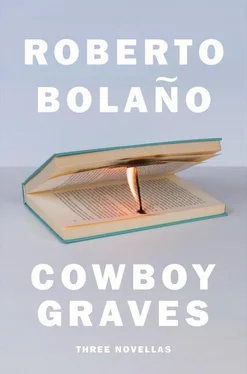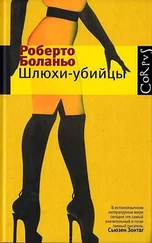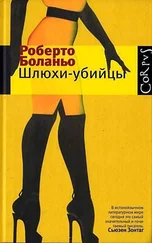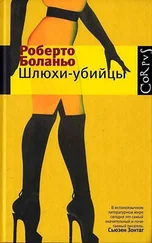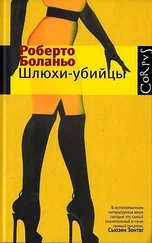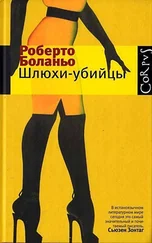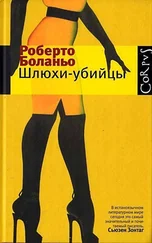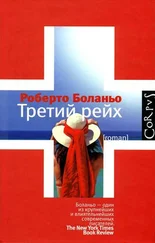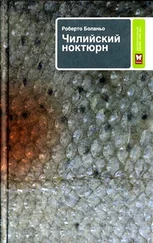As far as I can remember, my father only read the sports news. He had an album of clippings and pictures that he meticulously maintained, tracking his pugilistic journey from the ranks of amateur boxing to the bronze belt in the South American heavyweight championships. (He also liked football and horse races and tejo —the Columbian version of lawn bowls, played with explosives—and cocaine and swimming and cowboy movies…)
My father never joined the police force, of course. When he retired, he opened a soda fountain and married my mother, who was three months pregnant. Soon after, I was born, the poet of the family.
It all began years ago, on September 11, 1973, at seven a.m., in the library of the country house of Antonio Narváez, a well-known gynecologist and a patron of the fine arts in his spare time. Before my sleep-reddened eyes, twenty people lay sprawled on the sofas and rugs! All had drunk and argued without cease that night! All had laughed and made plans and danced without cease that interminable night! Except for me. Then, at seven or eight a.m., at the request of our host and his wife, I climbed onto a chair and began to recite a poem to lift everyone’s spirits and pass the time while the coffee was brewing, the exceptionally fine coffee that Antonio Narváez procured on the black market and served with restorative shots of pisco or whiskey before opening the curtains and letting in the first rays of sun as dawn broke over the Andes.
Well, I got up on the chair and the master and mistress of the house called for a moment of silence! This was my specialty. The reason I was invited to parties. Before an audience of familiar faces from the University of Concepción, faces glimpsed at film screenings or plays or encountered at previous country affairs, at the literary ambushes that Dr. Narváez liked to organize, I recited one of Nicanor Parra’s greatest poems from memory. My voice shook. As I gesticulated, my hands shook. But I still think it was a good poem, though it was received with pleasure by some and manifest disapproval by others. I remember that when I climbed up on the chair I realized that I, too, had drunk like a Cossack the night before. The chair was made of araucaria wood and, from up above, the rug’s arabesques seemed infinitely distant.
I must have been on the fifteenth stanza when two guys and a girl came in from the kitchen and broke the news. The radio was reporting that a military coup was underway in Santiago. Blitzkrieg or Anschluss, call it what you want, the Chilean Army was on the move.
The minute the announcement was made, the stampede was on, first into the kitchen and then toward the front door, as if everyone had suddenly gone mad.
I remember that in the middle of the scramble someone yelled at me to shut up, by which I gather that I was still reciting. I remember insults, threats, exclamations of disbelief, expressions mutating from the most sublime heroism to terror and back again, everything topsy-turvy and unfinished, while I stuttered over a line and scanned every corner, the last to realize what was looming over the republic. In the avalanche of people fleeing, my chair tottered and I fell flat on my face. The impact was sharp and painless. Half-stunned, I wondered why it was taking me so long to pass out. Then everything went black.
When I came to, the house was empty except for a girl whose lap my head was resting on. I didn’t recognize her right away. But it wasn’t the first time I’d seen her. We’d spoken the night before, and we’d met a few times before that at some workshop, Fernández’s or Cherniakovski’s, I wasn’t sure which.
A wet cloth was draped over my forehead and it was giving me the shivers. Someone had opened the curtains. An upstairs shutter was swinging in the wind, making a sound like a metronome. In the library, there was something supernatural about the way the silence and light enveloped us: the air seemed different, bright, new, an amalgam of superimposed walls behind which lay adventure or death. I looked at the clock. Only ten minutes had gone by. Then she said, Get up, we have to go as soon as we can. Like a ghost, I got up. Light as a ghost, I mean. Light as a feather. I was twenty years old! I got up and followed her. In the street was a Volkswagen with green bumpers and leopard-skin upholstery. We got in the car and set off. I was twenty and I was falling in love for the first time! I knew it instantly… And I couldn’t help it, tears came to my eyes…
Her name was Patricia Arancibia and she was twenty-one. She lived outside of Nacimiento, town of potters, in a two-story house of stone and wood, at the top of a bald hill with sweeping views of the whole valley. Along the way, I opened my mouth twice: first to ask where we were going, and second to tell her that her eyes were blue like the rivers of the province of Bío-Bío. The province has seven rivers, she said, glancing at me as we drove along dirt roads, speeding away from Los Ángeles. The Mulchén, the Vergara, the Laja, the Renaico, the Bureo, the Duqueco, and the Bío-Bío, father of them all. And each is different in color and flow. Sometimes, though hardly ever, all seven are blue, with big green tongues in the pools, though most of the time they run the color of stone, dark stone with emerald and violet streaks. Especially when the winter is long, she said sadly.
At first sight, her house looked like the house from Psycho . Only the stairs and the views were different. From Patricia Arancibia’s house, the views were sweeping, rich, desolate. From Norman’s house, of course, all you could see was the old highway and the swamp.
She parked the car under a shelter of weathered planks. The front door wasn’t locked. I followed her into the living room, which was enormous and full of art and books. My father is a painter, said Patricia. These are his paintings. As she made me tea, I looked at them. The central figure in nearly all of them was a woman with features vaguely resembling my rescuer’s. She’s my mother, Patricia explained, handing me a cup of tea. At a word from her, I sat in a chair while she examined my head. You’re all right, she said, but it’s strange that you were unconscious for so long. Where did everyone else go? I asked. Home, to their party headquarters, to their jobs, I don’t know… Why did you call the Bío-Bío the father of all rivers, not the mother? Patricia laughed. You should see a doctor, she said. For your head. I feel fine, I said. Once there was a pretty good artist who fell or was hit by a car; anyway, something like what happened to you. They took him to the hospital. After a while, he recuperated, or seemed to. He looked healthy and the nurses let him have paper and pencil. The first thing he wanted to draw was a portrait of an especially nice nurse. The nurse posed for him, flattered. When he was finished, everyone realized that he had only drawn her right half. As a test, they asked him to draw a table. He drew the right half of the table. When the doctors pointed this out to him, he insisted that the drawing was finished and complete. They tried a few more times and the same thing happened. The artist only drew what he saw, and he had lost sight of the left side of things…
I see everything whole, I said softly. I see your left side and your right side. The Bío-Bío is the father of all rivers, said Patricia Arancibia, and the Antuco is the mother of all volcanoes. It should be the other way around, I said. Father volcanoes and mother rivers. Patricia Arancibia laughed. I live with a woman who works for my family, she said. Do you know what her name is? It’s Crescencia Copahue. She’s seventy years old. She was my father’s nanny, though actually she’s like part of the family. Do you know what Copahue is? No idea, I said. It’s a volcano. Copahue is one of the seven volcanoes of Bío-Bío. Haven’t you ever seen my father’s paintings? No, I said. I’ve never even heard of him. There were some hot springs on Copahue that we visited when I was little. My father painted volcanoes, years ago. All the canvases have been sold now or burned.
Читать дальше
